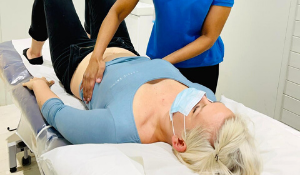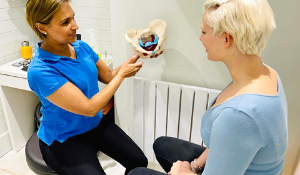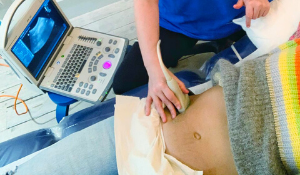Menopausal Treatments to Improve Overall Quality of Life
Very few women seek advice for menopausal symptoms. Yet, it can be transformative to talk about it and get the appropriate support.
Our pelvic health expert offers an individualised pelvic floor programme and personal guidance on exercises and lifestyle modifications. The aim is to relieve discomfort, empower you to manage your menopausal symptoms better, and improve your overall quality of life. No matter your age!
Treatment may include an individualised pelvic floor programme, abdominal and core strengthening exercises, and a general exercise programme.
She may also advise nutrition, sleep, mental wellbeing, lifestyle modifications and self-management strategies.












